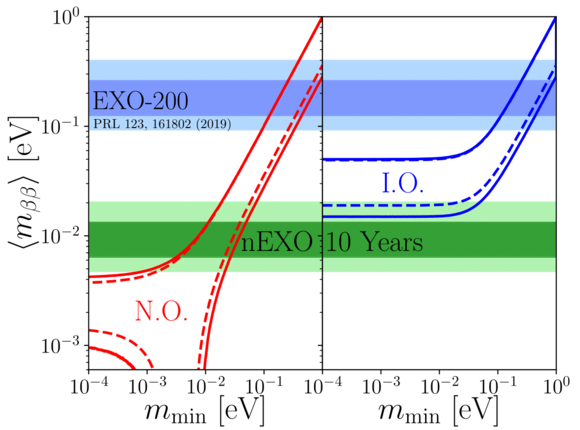
Learn more by reading our sensitivity and discovery potential publication >>
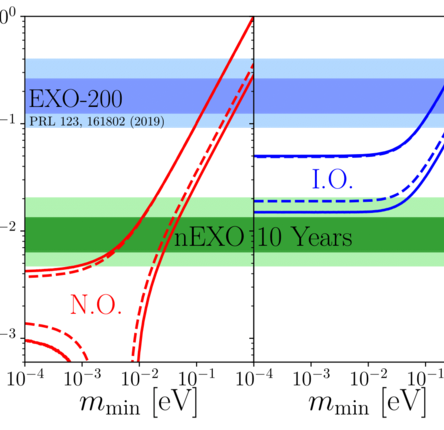
Learn more by reading our sensitivity and discovery potential publication >>
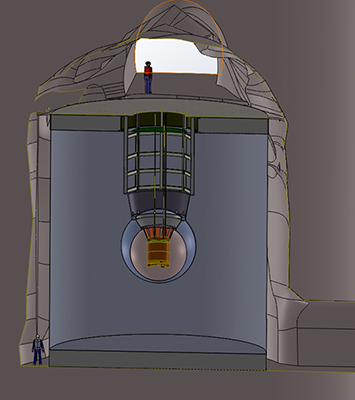
Learn more in our experiment overview >>
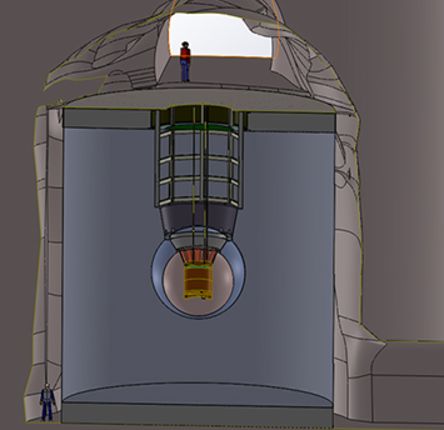
Learn more in our experiment overview >>
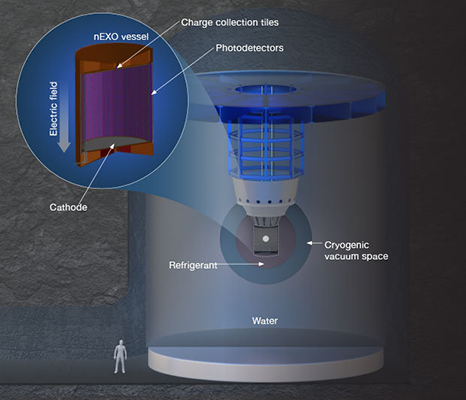
Learn more in our experiment overview >>
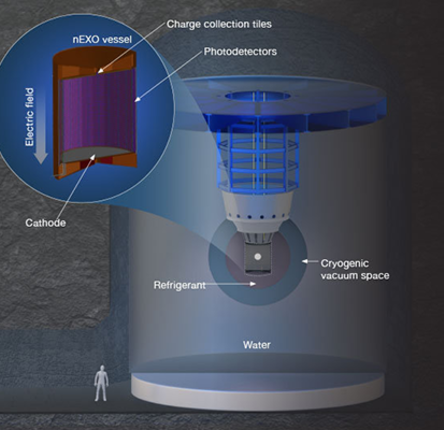
Learn more in our experiment overview >>
Aiming to better understand the nature of the neutrino and the origins of matter in the universe
Neutrinos—tiny, nearly massless particles with no charge—are difficult to detect and measure, but they may hold the answers to unanswered cosmic questions. To understand more about the neutrino, our scientists and engineers are searching for an extremely rare (and still hypothesized) version of double beta decay with the nEXO experiment.
Our collaboration combines expertise from all over the world to develop detector technology that will allow nEXO to achieve unprecedented sensitivity to neutrinoless double beta decays.
The nEXO experiment is under development. We invite you to explore this site to learn more about our latest work.
In the news
nEXO Collaborators win "Research Traineeships to Broaden and Diversify Nuclear Physics" DOE grant award
nEXO Portfolio Review
nEXO and Subatech Laboratory Collaboration
Featured publications
Rapid characterization of silicon photomultipliers for noble liquid experiments
Journal of Instrumentation | 2023
Development of a 127Xe calibration source for nEXO
Journal of Instrumentation | 2022 | arXiv: 2201.04681
nEXO: Neutrinoless double beta decay search beyond 1028 year half-life sensitivity
Journal of Physics G: Nuclear and Particle Physics | 2021 | arXiV:2106.16243
